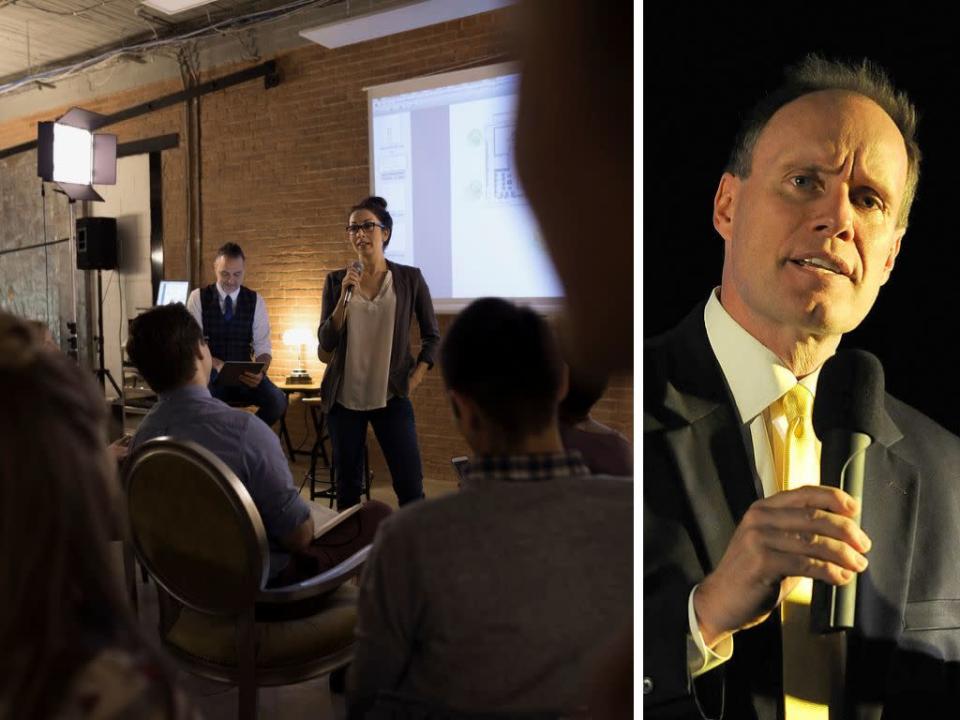To succeed in business, you’ll need to show these 13 behaviours

In a post-banking Royal Commission world, company executives are learning an important lesson: trust is everything.
It was also the central message that was pushed by trust expert and The Speed of Trust: The One Thing that Changes Everything author Stephen M. R. Covey during his presentation at the World Business Forum in Sydney on Tuesday.
Indeed, The Ethics Centre executive director Simon Longstaff said earlier this year that financial firms wouldn’t be able to fake their ethics, or pursue them just to improve the bottom line.
“If you do it for the dividend, you won’t get the dividend,” he said.
“It’s a case of being ethical for its own sake. The rewards of trust only flow to the trustworthy.”
Related story: When it comes to ethics, banks can’t fake it until they make it
Related story: Banking Royal Commission: What do the findings mean for you?
Related story: Chart: The banking Royal Commission has damaged trust in much more than just financial services
And in the companies that need to establish – or in some cases, desperately re-establish – trust, it’s the leaders and managers who have a particular role to play in shouldering the bulk of that responsibility.
A leader’s first job is to inspire trust; his second job is to extend it, Covey said. “Yes, it takes two to have trust, but it only takes one to start it.”
.@StephenMRCovey at #WBFSYD @wobi_en on the 3 big ideas about #trust:
1. Trust is an economic driver, not merely a social virtue.
2. Trust is the #1 competency of leadership needed today.
3. Trust is a learnable skill
"Trust changes everything."— Jessica Yun (@hijessicayun) May 28, 2019
While it sounds like a mammoth task, Covey has slimmed down the imperative to just 13 very do-able behaviours that he says all exemplary leaders exhibit.
Here’s what to do and how to do it:
Talk straight. “Use simple language. Call things what they are,” Covey said. “Don’t manipulate people or distort facts. Don’t spin the truth.”
Demonstrate respect. “Genuinely care for others… Treat everyone with respect, especially those who can’t do anything for you,” said Covey. “Don’t fake caring. Don’t attempt to be ‘efficient’ with people.”
Create transparency. The important thing about this is to declare your intent to the rest of the team, Covey indicated. “Err on the side of disclosure… Don’t have hidden agendas, don’t hide information.”
Right wrongs. This one is straightforward: apologise when you’re in the wrong, do it quickly, and fix it. “Make restitution where possible… Demonstrate humility,” said Covey. “Don’t let pride get in the way of doing the right thing.” Avoid denying, justifying or rationalising wrongs.
Show loyalty. Give credit where credit is due, said Covey. “Represent others who aren’t there to speak for themselves. Don’t ‘bad-mouth’ others behind their back.” If you need to talk about others, check your intent first – and don’t take credit for others’ work.
Deliver results. It may be easier said than done, but in essence, simply: perform. “Make things happen. Accomplish what you’re hired to do… Don’t overpromise and underdeliver. Don’t make excuses for not delivering.” Avoid falling into the trap of ‘fake work’ or thinking busy-ness equates with productivity.
Get better. “Increase your capabilities. Be a constant learner,” said Covey. “Develop feedback system – both formal and informal… Don’t assume your knowledge and skills will be sufficient for tomorrow’s challenges.” It won’t be enough to succeed in the current environment by resting on your laurels, he indicated.
Confront reality. The worst thing you can do is ignore or deny issues as though they don’t exist. “Take issues head on, even the ‘undiscussables’… before they turn into major problems. Lead out courageously in conversation.” It’s also important to remember your focus is on confronting the situation, not the person.
Clarify expectations. Reveal, discuss and re-negotiate expectations with your team, said Covey. “Don’t violate expectations. Don’t assume expectations are clear or shared.” Avoid being vague, which will lead to a loss of accountability.
Practice accountability. Hold yourself to account first; others second. “Take responsibility for results, good or bad… Don’t blame others or point fingers when things go wrong.”
Listen first. This will require being sensitive to others and what’s important to them. “Listen before you speak… diagnose. Listen with your ears – and your eyes and heart,” said Covey. “Don’t assume you know what matters most to others. Don’t presume you have all the answers – or all the questions.”
Keep commitments. Again, this is easier said than done: say what you’re going to do, then do it. “Make commitments carefully, including implicit commitments, and keep them at all costs… Don’t attempt to ‘PR’ your way out of a commitment you’ve broken.”
Extend trust. Leaders should give their trust “abundantly” to those who have earned it and “conditionally” to those earning it. Trust should also be extended based on the situation, risk and credibility of the people involved. “Don’t withhold trust because there is risk involved.”
The year-long banking Royal Commission exposed widespread wrongdoing among various levels of staff within prominent Australian financial institutions such as big banks, insurers, superannuation funds, and financial advice arms.
Employees and executives alike were found to have misled and taken advantage of Australians for what Royal Commissioner Kenneth Hayne described as “greed” and “the pursuit of short term profit at the expense of basic standards and decency”.
Make your money work with Yahoo Finance’s daily newsletter. Sign up here and stay on top of the latest money, news and tech news.

 Yahoo Finance
Yahoo Finance 
